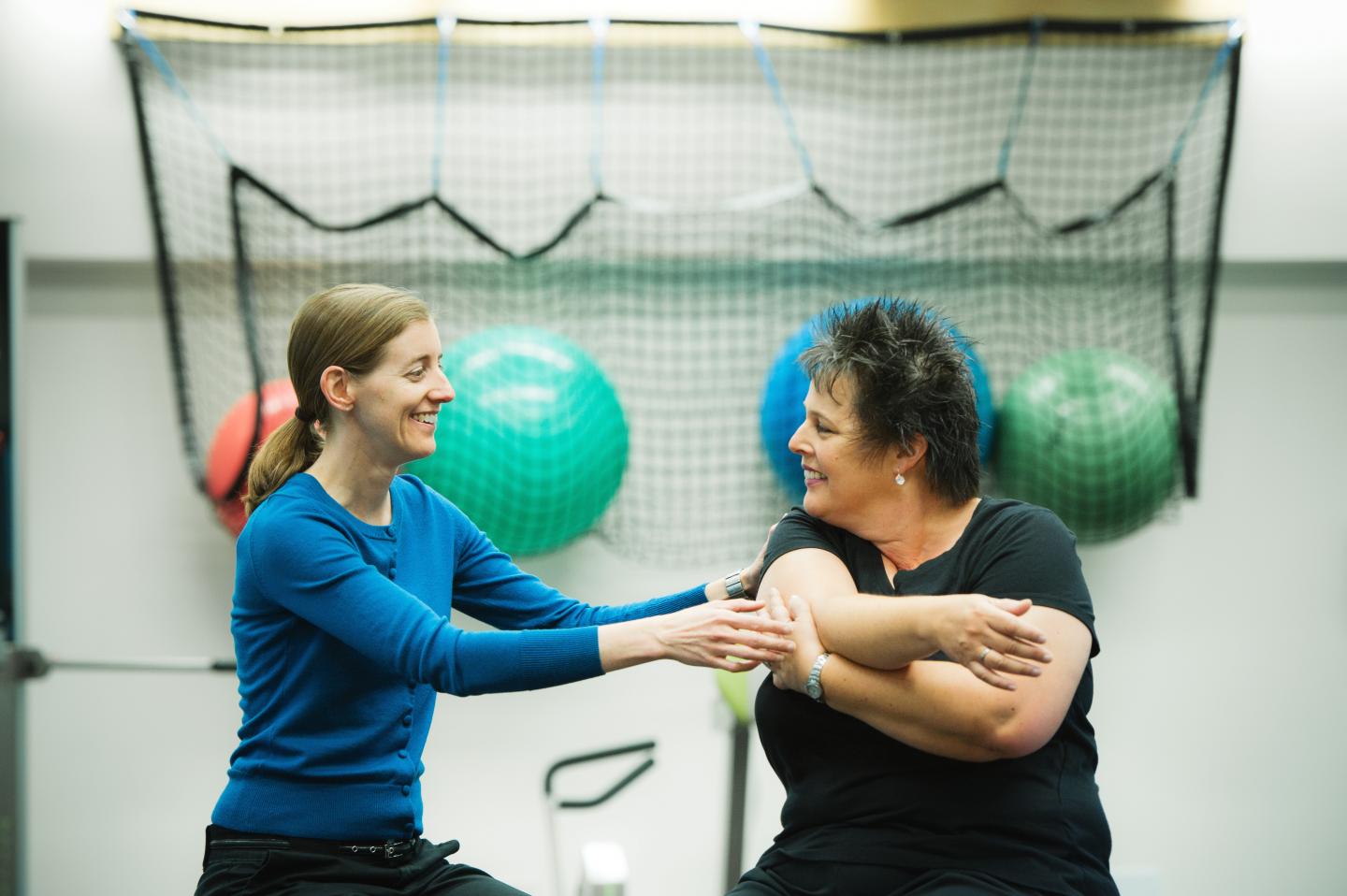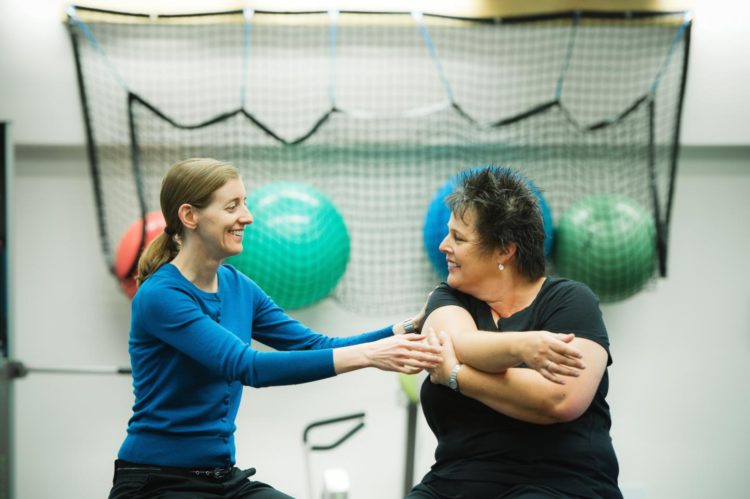
Credit: Martin Dee/University of British Columbia
For the rising number of cancer survivors worldwide, there’s growing evidence that exercise is an important part of recovery. But how much, and what type of exercise, is needed?
A recent review of research, conducted by an international group of experts led by the University of British Columbia, has resulted in the development of new exercise guidelines for cancer survivors.
The updated recommendations, published today in Medicine & Science in Sports & Exercise, outline specific ‘exercise prescriptions’ to address common side effects, such as anxiety and fatigue, associated with cancer diagnoses and treatment.
In general, the new guidelines recommend survivors perform aerobic and resistance training for approximately 30 minutes per session, three times a week. This is a departure from earlier guidelines, published nearly a decade ago, which advised cancer survivors to meet the general public health guidelines for all Americans — 150 minutes of exercise a week.
“Exercise has been regarded as a safe and helpful way for cancer survivors to lessen the impact of cancer treatment on their physical and mental health, but the precise type and amount of exercise to treat the many different health outcomes related to cancer treatment hasn’t been clear,” says the paper’s lead author, Dr. Kristin Campbell, associate professor at UBC’s department of physical therapy. “In the absence of this information, cancer survivors were advised to strive toward meeting the general public health guidelines for all Americans — an amount of physical activity that may be difficult for people to achieve during or following cancer treatment.”
The new recommendations are based on a substantive review and analysis of the growing body of scientific evidence in the field. Since the first guidelines were put forward in 2010, there have been more than 2,500 published randomized controlled exercise trials in cancer survivors — an increase of 281 per cent.
The new paper is just one of three papers published today that summarize the outcomes of an international roundtable that explored the role of exercise in cancer prevention and control. The roundtable brought together a group of 40 international, multidisciplinary experts from various organizations who conducted a thorough and updated review of the evidence on the positive effects of exercise in preventing, managing and recovering from cancer.
Together, the three papers offer new evidence-backed recommendations for incorporating exercise into prevention and treatment plans and introduce a new Moving Through Cancer initiative, led by the American College of Sports Medicine, to help clinicians worldwide implement these recommendations.
The new recommendations include:
- For all adults, exercise is important for cancer prevention and specifically lowers risk of seven common types of cancer: colon, breast, endometrial, kidney, bladder, esophagus and stomach
- For cancer survivors, incorporate exercise to help improve survival after a diagnosis of breast, colon and prostate cancer
- Exercising during and after cancer treatment improves fatigue, anxiety, depression, physical function, quality of life and does not exacerbate lymphedema
- Continue research that will drive the integration of exercise into the standard of care for cancer
- Translate into practice the increasingly robust evidence base about the positive effects of exercise for cancer patients
###
Campbell, who is the director of the UBC faculty of medicine’s clinical exercise physiology lab, served as the Canadian representative on the roundtable, working alongside the Canadian Society for Exercise Physiology, one of 17 partner organizations.
“The ultimate goal is to help people with cancer live longer and better lives. With these new guidelines and with continued research, we have a real opportunity to continue expanding the integration of exercise medicine into cancer care,” says Campbell.
Media Contact
Kerry Blackadar
[email protected]
604-827-2963
Original Source
https:/
Related Journal Article
http://dx.





